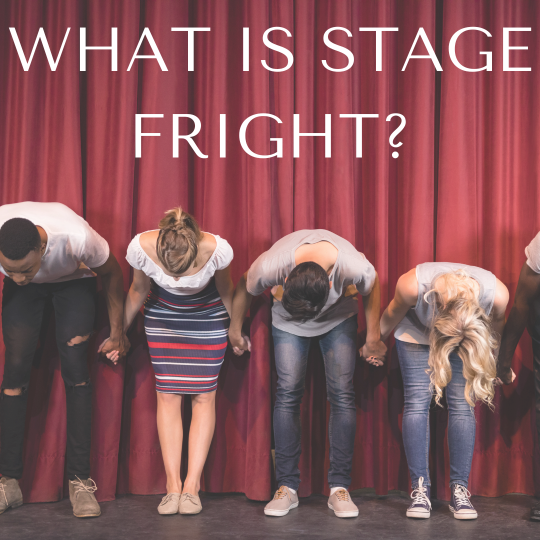We’ve all heard the term ‘stage fright’, but do you know what it actually means? And, no, it doesn’t mean you’re scared of the big wooden platform with seats in front of it that we call a stage ;)
‘Stage fright’ is the most commonly used term for ‘music performance anxiety’, which is best described as
“The experience of marked and persistent anxious apprehension related to musical performance [and is] manifested through combinations of symptoms...It affects musicians across the lifespan and is at least partially independent of years of training, practice, and level of musical accomplishment”*
Oooooft, science alert! Let’s unpick that.
Reading between the science jargon, we know that when musicians perform, they experience varying amounts of anxiety, in different ways. This particular performance anxiety can affect any musician at any time in their career and is not necessarily linked to levels of ability, amount of practice or length of time studying their instrument.
It also suggests that the performance anxiety experienced by musicians is usually negative, hence our understanding of stage fright as something that is paralysing and difficult to deal with. It means that we can experience physical, mental and behavioural stage fright symptoms, such as feeling sick, engaging in negative self-talk and being snappy towards others when we experience this particular stress.
Staying Alive!
All of this is usually accompanied by a surge of adrenaline that we perceive as negative - hence the term ‘fright’ in ‘stage fright’. This is a throwback to our human hunter-gatherer days when we depended upon the adrenaline surge to save our lives - if a man-eating tiger appeared, we needed to have the energy and strength to either get away from it or fight it.
These days, the things that can trigger adrenaline are anything that our bodies and minds perceive to be dangerous, life-threatening or something that requires self-preservation. Whilst performing isn’t either of those things, the attachments we have to a good outcome are similar to self-preservation - we want to do a good performance, so we get good reviews and thus our reputations are positive. A negative performance could mean a negative review, so our reputation and/or job might be at stake. This is where the self-preservation instinct kicks in, triggering the surge of anxiety and the cycle of stage fright begins.
You are Unique
Each person has a unique reaction to stage fright, depending on the experiences that have shaped their fears around singing in public. The cycle usually goes like this:

Our minds don’t know the difference between a real and an imagined performance so even visualising a bad performance can make it seem real, with real consequences. I’m sure most of us can relate to this - when you imagine a scenario that goes wrong, your mind will give you all the experiences as if it had gone wrong in real life.
Our brains are clever like that. But sometimes, we just want to perform confidently, without stage fright.
So, how do we perform confidently?
If you break one chain in the cycle, the cycle is broken.
Yep, I’m gonna repeat that so you can read it again.
If you break one chain in the cycle, the cycle is broken.
Simple. Right? Yes. But not always easy. That’s why I’m here!
Your Stage Fright Coach teaches you to deal with criticism, create a positive mindset, helps you to stop self-sabotaging, and thus alleviate stage fright symptoms, leaving you free to perform without nerves.
Ready to break the stage fright cycle?
Get in touch and let's get you started on the road to confident performances!
*Quote from: Kenny, Dianna T. 2009. "The Role of Negative Emotions in Performance Anxiety." In Handbook of Music and Emotion: Theory, Research, Applications, edited by N. Juslin. Oxford: Oxford University Press. p433

